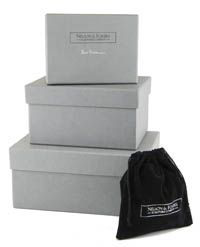- Home »
- Bronze Cheetah Sculpture: Running Cheetah by Jonathan Sanders
We Also Recommend
-
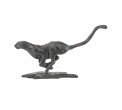
Bronze Cheetah Sculpture: Racing Cheetah by Jonathan Sanders
Including VAT: $398.41 Excluding VAT: $332.01 -
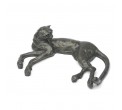
Bronze Cheetah Sculpture: Lying Cheetah by Jonathan Sanders
Including VAT: $334.15 Excluding VAT: $278.46 -
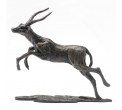
Bronze Impala Sculpture: Leaping Impala by Jonathan Sanders
Including VAT: $359.86 Excluding VAT: $299.88 -
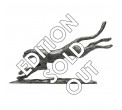
Bronze Cheetah Sculpture: Flying Cheetah by Jonathan Sanders
Including VAT: $443.39 Excluding VAT: $369.50 -
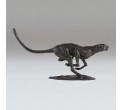
Bronze Cheetah Sculpture: Large Running Cheetah by Jonathan Sanders
Including VAT: $1,021.73 Excluding VAT: $851.45 -
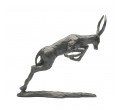
Bronze Impala Sculpture: Springing Impala by Jonathan Sanders
Including VAT: $359.86 Excluding VAT: $299.88 -
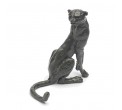
Bronze Cheetah Sculpture: Seated Cheetah by Jonathan Sanders
Including VAT: $334.15 Excluding VAT: $278.46 -
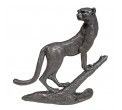
Bronze Cheetah Sculpture: Cheetah on Branch by Jonathan Sanders
Including VAT: $488.38 Excluding VAT: $406.98
Browse Products By:
-
Subject
- Best Sellers
- Small Bronze Sculptures
- Dog Bronze Sculptures
- Hare Bronze Sculptures
- Elephant Bronze Sculptures
- Horse Bronze Sculptures
- Bronze Sculptures of People
- Cat Bronze Sculptures
- Cheetah Bronze Sculptures
- Rhino & Hippo Bronze Sculptures
- Giraffe & Impala Bronze Sculptures
- Warthog & Meerkat Bronze Sculptures
- Lion Bronze Sculptures
- Farm Animal Bronze Sculptures
- Other Bronze Wildlife Sculptures
- Paintings and Prints
- Garden Bronze Sculpture
- Guest Artist Collection
- Latest Releases
- Price
- Collections
THE ART OF THE PERFECT GIFT
Since 2009, we have been casting solid bronze sculpture in British foundries and delivering it to galleries and collectors worldwide. We are proud to say that every piece is hand cast using the traditional lost wax process and takes at least two weeks to make. We do NOT cast anything in resin.
Every bronze sculpture arrives beautifully boxed, ready for you to give as a delightful gift, or to enjoy opening yourself!
What to expect when you receive a Nelson & Forbes sculpture...
*We promise to never pass on your details



